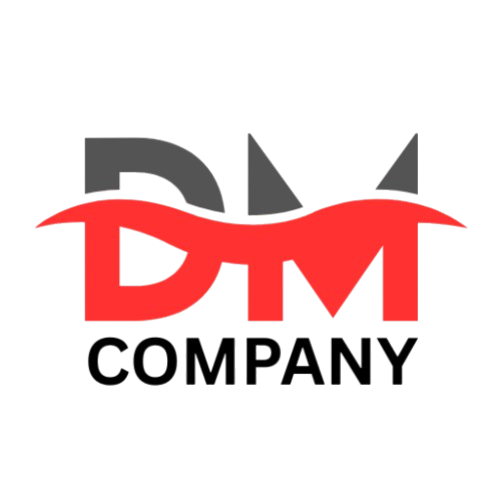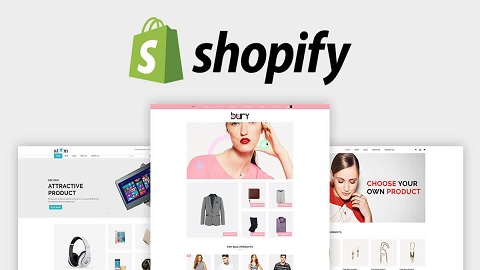In the ever-growing world of eCommerce, having a visually appealing and functional online store is critical to success. Shopify has emerged as one of the leading platforms for building online stores due to its user-friendly interface, customizable design features, and powerful integrations. Whether you’re a small business owner or an established brand, a well-Shopify Website Design can help you grow your digital presence and boost sales.
1. Why Choose Shopify for Your Online Store?
Shopify is a hosted eCommerce platform that allows businesses to create, manage, and grow their online stores without needing advanced technical skills. It offers a wide variety of professional themes, secure payment gateways, seamless inventory management, and reliable customer support. With Shopify, you get a scalable solution that grows with your business, allowing you to focus on what matters most—selling your products.
2. Importance of a Well-Designed Shopify Website

Your website is often the first interaction a customer has with your brand. A poorly designed store can drive potential buyers away, while a visually pleasing and intuitive site can significantly improve user engagement and conversion rates. A great Shopify design ensures:
- Easy navigation
- Fast-loading pages
- Clear call-to-action buttons
- Mobile responsiveness
- Brand consistency
Investing in good design means building trust and delivering an excellent shopping experience.
3. Customizing Your Shopify Theme
Shopify offers hundreds of free and premium themes, but customization is key to making your store unique. You can modify colors, fonts, banners, layouts, and more using Shopify’s built-in editor or by editing the theme’s code (Liquid, HTML, CSS). Hiring a professional Shopify designer can help you tailor the store to match your brand identity perfectly and improve user experience.
4. Essential Elements of Shopify Website Design
To build an effective Shopify store, include these must-have design elements:
- Homepage Banner: Highlight your best products or promotions
- Product Pages: Use high-quality images, detailed descriptions, and customer reviews
- Navigation Menu: Keep it simple and logical for easy browsing
- Search Functionality: Help users find products quickly
- Contact Page: Add contact forms, maps, and social media links
- Mobile Optimization: Ensure your store works smoothly on all devices
These elements not only enhance appearance but also help guide the customer journey from browsing to checkout.
5. Optimizing for Conversions
A beautiful store alone won’t guarantee sales. Conversion optimization is crucial. Use clear call-to-action buttons like “Buy Now” or “Add to Cart,” and keep the checkout process as short as possible. Offer multiple payment methods and display trust signals such as secure checkout badges or customer reviews. You can also use Shopify apps for upselling, retargeting, and email marketing to increase conversions.
6. SEO-Friendly Shopify Design
Search Engine Optimization (SEO) should be a part of your Shopify design strategy. A well-optimized store ranks higher in search results, bringing in organic traffic. Use SEO-friendly URLs, proper header tags, image alt text, and meta descriptions. Make sure your site structure is clean, and pages load quickly. Shopify also allows you to integrate SEO apps to monitor and improve your site’s performance.
7. Hiring a Shopify Website Designer
While Shopify is beginner-friendly, professional designers bring expertise in layout, user experience (UX), branding, and SEO. Hiring a Shopify expert can save time and ensure your store is designed to convert visitors into loyal customers. They can help with custom development, theme installation, integrations, and ongoing maintenance.
FAQs About Shopify Website Design
1. Is Shopify good for beginners with no technical experience?
Yes. Shopify is built for users with little to no coding knowledge. Its drag-and-drop interface and ready-to-use templates make it easy for anyone to set up and manage a store.
2. Can I customize my Shopify theme to match my brand?
Absolutely. Shopify allows you to change colors, fonts, layouts, and images. For more advanced changes, you can edit the code or hire a Shopify developer.
3. How important is mobile responsiveness in Shopify design?
Very important. Most customers shop on mobile devices, so your store must look and function well on smartphones and tablets to provide a smooth shopping experience and avoid losing potential sales.
4. Does Shopify support SEO features?
Yes. Shopify offers built-in SEO features such as customizable meta titles, descriptions, image alt text, and clean URLs. You can also use third-party SEO apps for additional optimization.
5. How much does it cost to hire a Shopify website designer?
The cost varies depending on the complexity of your project and the designer’s expertise. Freelancers might charge $300–$1000 for basic designs, while agencies may charge $2000 or more for a fully custom store.
Conclusion:
A well-designed Shopify website can be the foundation of your eCommerce success. By combining aesthetics with usability, speed, and SEO, you create a platform that not only attracts visitors but converts them into paying customers. Whether you design it yourself or hire a professional, always prioritize the customer experience and stay true to your brand.

